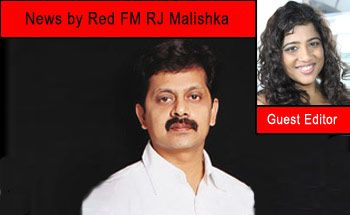
MUMBAI: Radio stations today are largely governed by listenership coupled with advertisements and sales garnering the profit and loss statement of the network across the country. While popular radio jocks are the star highlights, they contribute an average of 20-25 per cent to the overall revenues of the radio station while majority comes in from music.
Red FM senior VP & national sales head B Surendar affirms, "Ads, events and activations is how the revenue is generated. Clearly all depends on the customer solutions and providing the right solutions to them as comprehensive and as far as possible a 360 degree one. Along with that the star radio jockeys in the networks and from other centers contribute around 20-25 per cent in the overall revenue."
Red FM Delhi is the highest paying radio station across its 49 station network in the country. While ad sales and programming is involved in constant tussles, the question of fitting in a certain timeframe of advertisements within an hour block is always the focus. While the aim of most stations have always been increased number of ads leading to a rise in revenues, Red FM pitches itself between 14-18 minutes of advertisements within a one hour block.
"I really feel that radio listeners are not that sensitive. I feel there are more breaks in content through the music and RJ talks. I think between 14-18 minutes of advertisements in a one hour block is tolerant," he states.
Across its 49 station network, Red FM has a total of around 1000 plus advertisers on-board with major brands including 225-250 advertisers. With their kitty full of brands, the station now aims at enforcing the FMCG vendors to spend a lot more as compared to the total ad spent. "At the proportion of their total ad spent, I would like them to spend a lot more on what they are doing currently which is about two-three per cent compared to the industry average of around four per cent," he avers.
As a large number of radio stations lay their bets on advertisers, they sometimes have to face client requests which have been unacceptable. Direct endorsements are very difficult in a complex medium like radio and that is the last thing a radio station would want to do with their jocks. Thus according to Surendar, an ideal sales person should possess three qualities – he/she should have a vision where the future revenues will come from, knowledge about the services as well as the clients requirements and the third has to be a lot of self-motivation.
Sharing his experiences, Surendar says, "I remember there was this one client from a soft-drink brand whose tagline was ‘Ghum ho Jao’. They wanted Malishka to be off-air for one week. For me, the most absurd thing would be direct endorsement but any endorsement done very subtly by the radio jockeys should highlight what the listener would like. I think in radio people don’t hate commercial endorsements unless it’s pretty blunt and straightforward. Even the beverage endorsement, we could have handled it well on-air, maybe not seven days but one day. If you are off-air and doing bytes and building a story around it, I think people tend to accept it."
Having won the ‘Sound of India’ competition organised by the International Radio Festival in association with Radioandmusic.com, Red FM’s morning jock Malishka has won the opportunity to represent the country at the festival in Zurich and present her show in front of an international audience. Expressing his excitement at the honour, Surendar states, "Awards are always good and this award will definitely help us further as a brand too. I think RJs are very critical in extending a brand and especially a morning jock like Malishka representing Red at an international level is terrific news."
Red FM's RJ Malishka came on-board as a special ‘Guest Editor' at Radioandmusic.com's (RnM) office and engaged in a special interaction with B Surendar and contributed to the fifth anniversary celebrations of RnM.